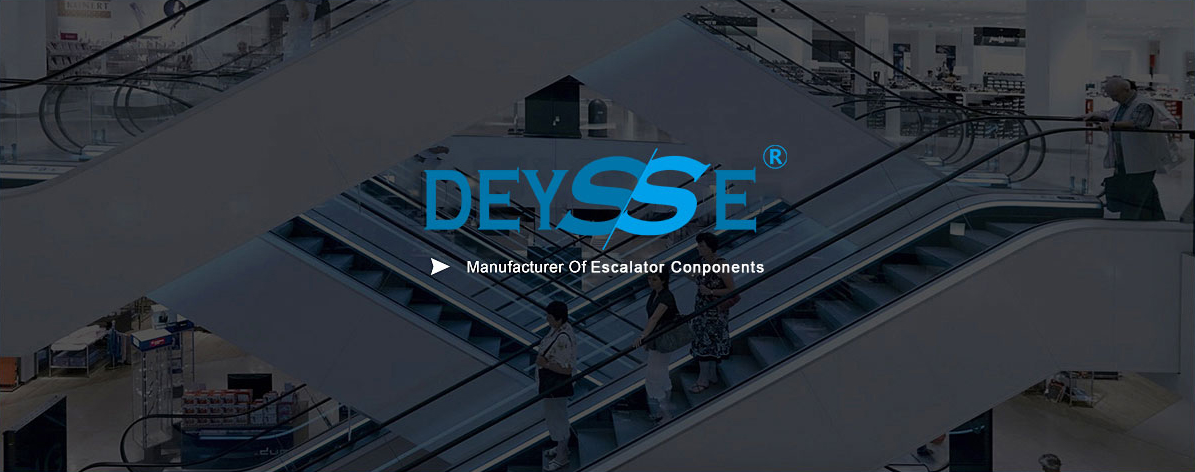The Future of Escalators: How Technology and Innovation are Changing the Way We Move
- Categories:Product Research
- Author:Operation
- Origin:Original
- Time of issue:2023-03-06
- Views:0
(Summary description)Three major challenges and opportunities for elevator components in the 21st century: improving energy efficiency and environmental protection, enhancing safety and reliability, and adapting to customer needs and expectations.
The Future of Escalators: How Technology and Innovation are Changing the Way We Move
(Summary description)Three major challenges and opportunities for elevator components in the 21st century: improving energy efficiency and environmental protection, enhancing safety and reliability, and adapting to customer needs and expectations.
- Categories:Product Research
- Author:Operation
- Origin:Original
- Time of issue:2023-03-06
- Views:0
Escalators are one of the most common and convenient means of transportation in modern buildings, especially in shopping malls, airports, subway stations, office buildings and other places. They can move large numbers of people quickly and efficiently between different levels of the structure, saving time and effort. However, as technology and innovation are changing the way we move, escalators also face several challenges and opportunities in the 21st century.
One of the main challenges facing escalators is reducing their environmental impact and improving energy efficiency. According to a report by Elevator World, escalators consume approximately 2% of the electricity used in buildings worldwide. This is largely due to their continued operation regardless of passenger demand. To address this, some manufacturers have developed regenerative drives for escalators that recover some of the energy wasted during braking and feed it back into the grid or store it for later use. Depending on traffic patterns, these devices can reduce energy consumption by up to 60%. Other solutions include variable speed control, LED lighting, low-friction components and lightweight materials.

Another challenge facing escalators is improving their safety and reliability. Escalators are prone to wear and tear due to constant use and exposure to various environmental conditions. They also present a potential risk of accidents and injuries if not maintained or used properly. According to a study by the Consumer Product Safety Commission (CPSC), there were an estimated 17,000 escalator-related injuries in U.S. hospital emergency departments in 2007. The most common causes are falls, entrapment of clothing or body parts, and contact with moving parts. To prevent these incidents, some manufacturers have introduced advanced features such as sensors that detect obstacles or abnormal conditions; emergency brakes that activate Stop button; Handrail speed monitoring synchronized with pace; Demarcation lights to indicate step edges; Skirt brushes to prevent pinching; Anti-slip coating to improve traction; Fire detection system to trigger an alarm; Remote monitoring system to enable diagnostics and maintenance.

A third challenge for escalators is adapting to changing customer needs and expectations. Escalators are not only functional devices but also aesthetic elements that contribute to the design and ambience of buildings. Today's customers demand more comfort, convenience, accessibility, customization,and the interactivity of the escalator. Some examples of innovative solutions to meet these needs are:
- spiral escalators: these are curved escalators that can follow complex shapes and angles, Create dynamic visuals and save space.
- Inclined moving walkways: these are moving walkways that carry passengers along an inclined direction Paths with different gradients.
- transparent escalators: these are escalators with transparent components such as steps, Handrails and railings to create a sense of openness and brightness.
- Interactive escalators: These are escalators with interactive features such as touch screens, Speakers, cameras or projection systems Can display information, entertainment, advertising or art.
The future of escalators looks bright as technology and innovation continue to transform them into a more efficient, safer and more engaging mode of transportation. Escalators will not only change the way we travel, but also the way we experience our surroundings.
Scan the QR code to read on your phone
News More


LIFT EXPO ALGERIA 2024

2023 Vietnam Lift International Expo ended successfully

Deysse on first day of the 15th WEE Expo!
MESSAGES
CONTACT US
> Contact Person: Sean Lee
> Phone: +86 20 8304 1994
> Fax: +86 20 8304 1967
> Whatsapp: +8613924192218
> Email: info@deysse.com
> Web: http://www.deysse.com
> Address: Room 2801-1,Jinhui Building,No.123 Jiefang South Road,Yuexiu District, Guangzhou, 510120 China
Copyright © 2021 Guangzhou Deysse Elevator Fittings Co., Ltd All Rights Reserved. privacy protection









